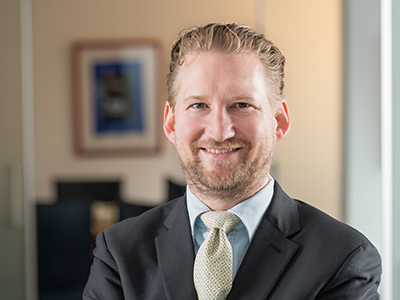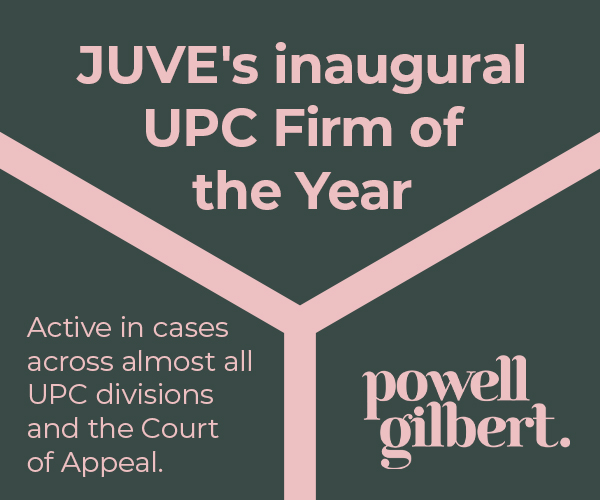Reel and Hogan Lovells repel Fives damages claim at the UPC
French mechanical engineering company Fives is not entitled to have its claims for the amount of damages it can request against Reel determined by the UPC. The UPC local division in Hamburg based its decision on the fact that the previous patent infringement ruling against Reel came from the Düsseldorf Regional Court, rather than from the pan-European court itself.
13 December 2023 by Mathieu Klos
In the dispute between two manufacturers of control units for aluminium melting furnaces, Fives has failed to enforce its claims regarding the amount of damages it is seeking against competitor Reel at the UPC. The ruling is likely to have consequences on actions for declaratory judgments, regarding damages amounts, during the transition period from national to UPC law.
The decision comes after Düsseldorf Regional Court found that Reel had infringed Fives’ patent EP 17 40 740 B1 in August 2022. According to the Hamburg local division, the UPC therefore had no jurisdiction to determine the amount of damages in this case (case ID: UPC_CFI_559935/2023). In doing so, the local division followed Reel’s request and rejected Fives’ claim for the determination of damages.
The dispute between Fives and Reel could have a global impact on aluminium production. Industry in China, Canada and Russia in particular produce the metal on a large scale. On a national level, the Federal Court of Justice in Germany is currently still clarifying whether or not EP 740 was rightly granted (case ID: X ZR 114/22), while the Federal Patent Court confirmed the patent in May 2022.
UPCA in play
Sabine Klepsch, the presiding judge in this case, ruled on Reel’s application alone and without an oral hearing. Klepsch based her decision primarily on the fact that this type of claim is not listed in the new court’s jurisdiction catalogue.
Article 32 of the UPC Agreement regulates how the UPC can approach damages claims. Thus, the headnote of the ruling states, “Pursuant to Article 32 (a), the Agreement gives the UPC jurisdiction to determine damages only after a previous action for patent infringement has been brought before a UPC division.”
Fives relies on UPC
However, Fives had fully trusted in the jurisdiction of the court and did not opt out EP 740 in the spring. The patent protects a compact service module for electrolytic aluminium production plants.

Sabine Klepsch
After declining to opt out, Fives was of the opinion that, following the UPC’s launch in June, the court was now responsible for all further steps, including the determination of damages. The company has not yet filed a corresponding lawsuit with a German court.
Fives can now appeal against this decision to the UPC Court of Appeal, although the company has not yet taken this step.
Nevertheless, Fives has filed an application with the Hamburg local division under Rules 333 and 102 of the UPC Rules of Procedure. The company intends to have the court review whether the presiding judge and judge rapporteur may rule on Reel’s application without her associate judges.
Paper copy only
However, if the local division’s judgment is upheld in the long term, companies that have obtained an infringement judgment before a national court would also have to conduct the damages proceedings at the same court. This would apply even if the UPC has assumed jurisdiction of the European patent.

Konstantin Schallmoser
The case is also significant because it is the only UPC case that observers cannot view in the CMS system; rather, the court keeps the orders in paper form. The ruling states, “A submission via the electronic case management system failed because inputting a procedure for determining a claim amount requires an underlying UPC case number.”
Actions with special case configurations, which the UPC’s jurisdiction catalogue does not directly feature, could encounter problems with electronic filing.
Franco-German team
Konstantin Schallmoser, partner at Preu Bohlig, represents Fives in the UPC proceedings. He had previously advised Fives in the German proceedings and heads the firm’s Paris office.
Preu Bohlig opened the office at the end of 2014, although it has no French practitioners and does not operate in the French legal market. German lawyer Schallmoser serves mainly the firm’s strong French clientele, when it is involved in patent proceedings in Germany. The German law firm also aimed to be present before the Paris UPC central division.

Benjamin Schröer
For Fives, Schallmoser is working with the French patent attorney Denis Boubal from Plasseraud IP. The law firm had previously filed the patent application.
Strong UPC presence
Schallmoser is currently fairly active at the UPC, having filed another action for Canè against France Développement Électronique. Here, he is working alongside the French litigator Matthieu Dhenne.
Hogan Lovells had also already advised its client Reel in the German proceedings, with a mixed team led by lawyer Benjamin Schröer and patent attorney Andreas Schmid.
With six UPC disputes including for Reel, Gucci, Meril Life Sciences, SodaStream, Supponor and Xiaomi, Hogan Lovells is one of the most present law firms at the UPC.
For Fives
Preu Bohlig & Partners (Paris, Hamburg): Konstantin Schallmoser (partner); associates: Carl-Alexander Dinges, Alice Pasch
Plasseraud IP (Lille): Denis Boubal (patent attorney)
For Reel
Hogan Lovells (Munich): Benjamin Schröer, Andreas Schmid (patent attorney; both partners); associates: Daniel Kaneko, Leonard Hollander, Cédric Rohr (patent attorney)
Unified Patent Court, local division, Hamburg
Sabine Klepsch (presiding judge and judge rapporteur)

